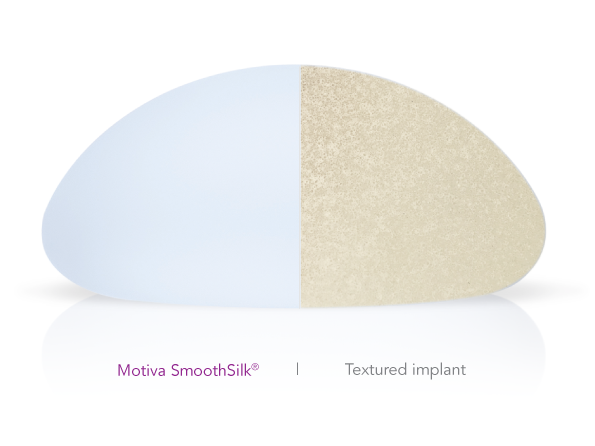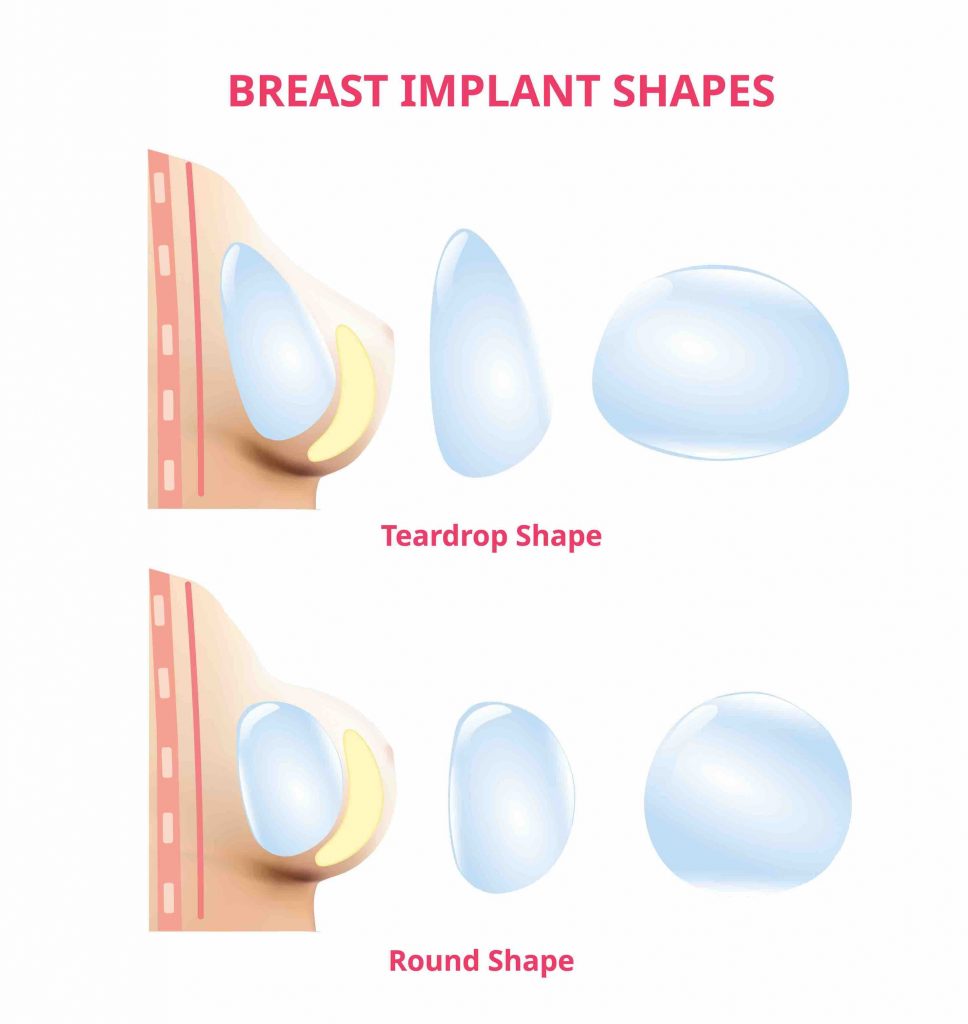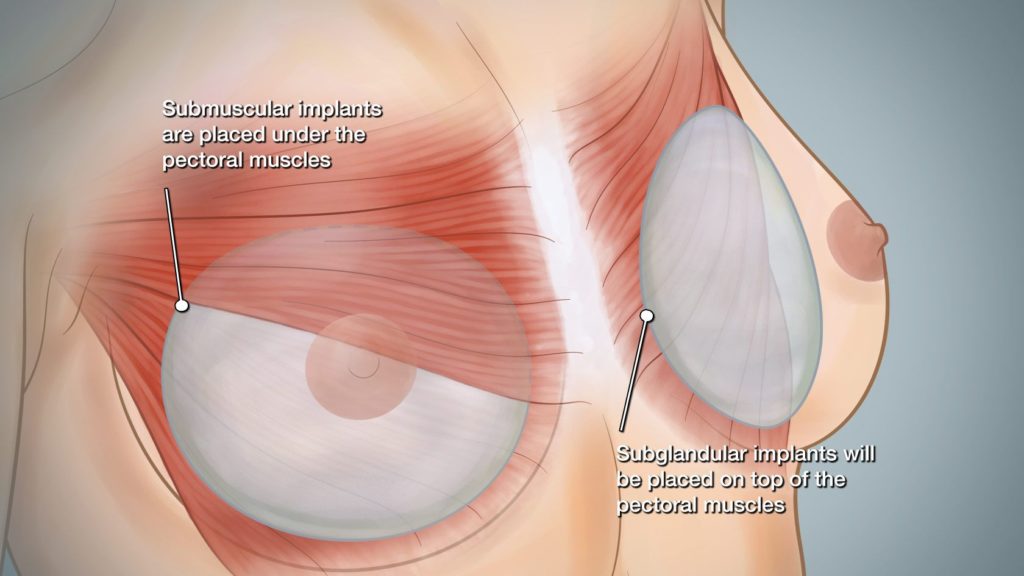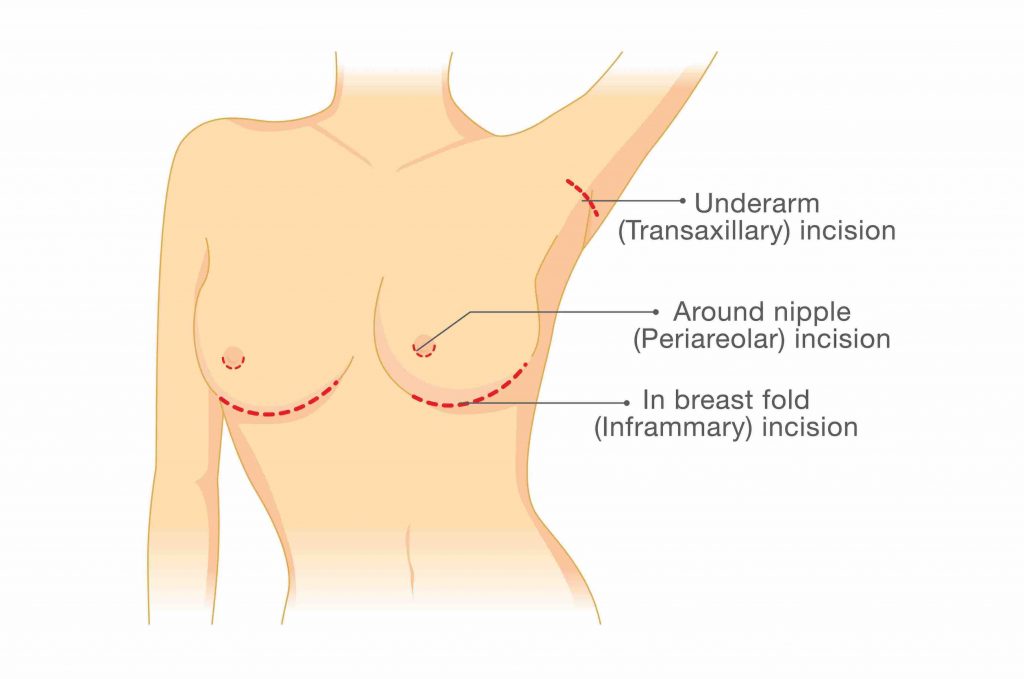Everything to Know About Breast Implants
Breasts are an important part of a woman’s body as they provide femininity to your overall appearance. Since breasts are an integral part of the feminine gender, they are always kept at a higher priority in an aesthetic sense. If you have concerns regarding your breast size, shape or symmetry, there are a variety of surgical procedures that can assist you. Breast implant profile and projection play a big role in the outcome of breast surgery. These include breast lifts, breast reduction, or breast enhancement using breast implants. These procedures have become very widely accepted cosmetic procedures and the techniques have improved and evolved.
Specialist Plastic Surgeon, Dr Mark Doyle performs breast surgery with meticulous care and expertise. He has been in practice for 30+ years and continues to deliver exceptional results for all his patients.
Breast implants tend to be the most reliable way of adding volume and shape to the breast. This is because the profile and projections of the implant can ensure a consistent breast size.
Breast implants make your boobs larger, but without a breast lift, the breast cannot be lifted in position. If you have sagging breasts, a breast lift with implants is often recommended.
Reasons for Getting Breasts Implants
- To improve the size and shape of your breasts
- To create a more proportionate body shape
- To improve upon congenital or acquired breast defects (tubular breasts)
- To enhance cleavage or side boob appearance
- To fit a wider range of clothes
The choice of breast implants depends on your aesthetic goals but may also be influenced by your skin laxity, body composition, existing breast tissue, lifestyle, and more. Remember, getting good results depends on a variety of aspects of your surgery. It’s important to plan the surgery carefully but also to follow pre-surgery and post-surgery instructions. This includes not smoking, eating well, rest, not exercising or doing too much too early, and understanding the healing and recovery processes and time frames.
Breast Implant Considerations
- What size implant suits your body?
- What shape implant do you want? – Round or Teardrop (Anatomical)
- What projection do you want? – low or high profile
- Where do you want the breast implant to be placed? – Above the muscle or below the muscle
- Do you want the result to look natural or fake?
- Does your body have enough fat cells to support the implant?
There’s a lot of information you’ll want to be aware of and ready for before moving on to the surgery. So be well versed with the above questions, and begin to consider your options before your initial consultation with Dr Doyle. You can also look into recovery after breast augmentation surgery.
Types of Breasts Implants
Silicone-Based Implants
Silicone implants, as the name suggests, contain silicone gel inside a bag made from silicone. They give the best natural look and feel depending on size and profile. and they often result in a more natural aesthetic look. These are the most popular breast implants used by Dr Doyle at Gold Coast Plastic Surgery. They do not deflate, and even in the case of a rupture, the silicone tends to remain within the capsule (scar tissue) surrounding the implant.
Saline Implants
Saline implants have a rubberised silicone outer shell and contain sterile saltwater inside them. They come empty and are filled during the procedure. These implants were hugely popular two decades ago but have now been replaced by silicone breast implants in terms of popularity.
Saline based implants have the advantage that if they leak inside the body, the implant filling can be absorbed with minimal complicationSs. Another benefit is that since they are filled after being placed in the breast pocket, they often have a smaller incision scar.
A drawback of saline implants is that they tend to give a ripple effect that can be seen through your breast skin. This is particularly true if you don’t have a large amount of natural breast tissue on top of the implant. They also don’t feel as natural as silicone implants.
Breast Implant Size and Texture
Breast implant sizes come in different shapes and sizes.
The size of your breast implants is chosen from the options presented by Dr Doyle during your initial consultation. It’s fairly common to use different size implants on each side to correct small asymmetries between the breasts.
Breast Implant Size
You may have a question, “How many cc of breast implant do I need to achieve a B cup, C cup or D cup bra size?”
Most plastic surgeons measure breast implant size in cc or cubic centimetres of liquid volume, so it can be quite confusing to estimate your needs. Cup size measurements can be unreliable as they rely on the amount of natural breast tissue you have before surgery.
As a rule of thumb, It takes around 200cc of breast implant to increase from an A cup to a B cup and may take 250cc for a full B cup. If you are a full B cup and want to enlarge your breast two cup sizes to a D cup, then you will need at least 350cc-450cc of breast implant size to achieve that enlargement with a natural breast shape.
Learn more about implant sizes in our blog, How to Choose the Right Breast Implant Size.
Breast Implant Texture

The texture of the breast implant can range from smooth to textured surfaces with a variety of shapes, sizes, and fill. Textures include:
Smooth Implants
Their smooth surface cannot grip onto the tissue surrounding the implant and advanced surgical techniques are required to keep them in the correct position.
Nano Textured Implants
Nanotextured breast implants have been shown to act the same as smooth surface implants. They have been specially designed to lessen the risk of chronic infection in the breast. They have a very low risk of capsular contracture and are not associated with breast implant-associated anaplastic large cell lymphoma.
Textured Implants
Textured implants are cautioned against and are never used by Dr Doyle due to the link between textured implants and breast implant-associated lymphoma.
Breast Implant Projection
The projection of breast implants refers to how far the breast implant extends forward in front of your chest. As the profile increases so does the cup size.
Breast implant profiles can be categorised as:
Low Profile
A low profile implant gives you the least projection or extension from your chest and the least amount of implant fill. They are most commonly used when a woman wants a small and subtle increase in breast size.
Moderate Profile
A moderate profile implant gives projections between high and low profile and has a moderate implant fill. These are the most commonly used breast implant profiles as they can provide a natural look, with a good amount of cleavage.
High Profile
These give the highest amount of projection from the chest and will have the greatest volume of implant fills. These are more commonly suited for women who are looking for a more projected look from the side profile and a large cup size.

Breast Implant Shapes

These are the basic breast implant shapes that come in various sizes:
Round Breast implants
Round implants create a soft well-rounded appearance giving a fuller look at the top portion of the breast and a high projection. Because the implants are symmetrical if they rotate, their shape does not change.
Anatomical Teardrop Breast implants
Teardrop implants as the name suggests, share the shape of natural real breasts both in looks as well as feel. Dr Doyle uses teardrop implants with a nano surface. They rely on gravity shifting the silicone in the implant to create a teardrop shape.
Breast Implant Placement

Breast implant placement is another important factor to consider while getting implants. To put it simply, the surgeon is going to make an incision in your breasts, create a pocket and place the implant in the pocket. Placements are most commonly done in the following 3 ways:
- Placing the implant in front of the pectoral muscle
- Behind the pectoral muscle
- Or partially behind the muscle (dual plane).
Submuscular Implant Placement
Under the muscle type of placement helps achieve a more natural look. The implant is placed underneath or behind the pectoral muscle which allows the soft tissue to cover the breast implant. Submuscular implant placements usually have a slightly longer recovery but more natural results.
Subglandular implant Placement
These are placed in front of the pectoral muscle. Over the muscle implant placements are suited for breasts with a good volume of breast tissue. Having enough breast tissues helps to hide the outline of the implant and can safeguard against rippling. These are more comfortable and have faster recovery and procedure time.
Dual Plane Breast Augmentation Placement
These placements are partly behind the pectoralis muscle and partly behind the breast tissue.
The dual-plane technique comes in very handy in cases of breast deflation with ptosis (sagging), which occurs after having children, breastfeeding, losing weight, or naturally with time. In the dual plane approach, the upper muscle coverage of the implant reduces the risk of rippling and implant visibility in the upper part of the breast. It also reduces the risk of capsular contracture and disruption of cleavage (symmastia), with improvement in mammography accuracy. And, the lower part of the breast implant that is covered by breast tissue benefits from a smoother implant-breast transition, enhanced shape, and a more natural look and feel.
Incision Site for Breast Implants

The incision is performed under general anesthesia and is made in one of 3 places. They are:
- Inframammary Incision/Under the breast: It is done in the crease beneath the breast and is considered the more secure technique. It also provides hidden scarring.
- Periareolar Incision/Around the nipple: The incision is made around the nipple/areola. This incision is typically not preferred unless a breast lift is required to lift the breast tissue and nipple position.
- Transaxillary Incision/Through the Armpit: This type of incision is made in the armpit fold and is only recommended to patients at risk of keloid scarring. This is the most complicated incision and has the most complications. It is not performed by Dr Doyle.
Risks and Complications of Breast Implants
Breast implants do come with risks and complications that may be short-term or long-term.
Short-term complications can include pain, post-surgical infection, excessive bleeding, anesthesia, and silicon-induced hypersensitivity reactions.
Long-term complications may include
- Unwanted scarring: They can be managed by some postoperative treatments or some ointments for the removal of scars.
- Breast implant rupture: Both silicone and saline-based implants may rupture over time. The rate of breast implant rupture in Motiva implants is very low.
- Risks of BIA-ALCL with textured implants. These implants are no longer used in Australia.
- Breast implants, augmentation do not last forever. They require further revision surgery to remove or replace the implant.
- Weight gain or loss, pregnancy and age can result in unwanted aesthetic changes.
Also, the FDA recommends that women who have silicone gel-filled implants should get an ultrasound five to six years after the implant surgery. Then, it is recommended to have MRI scans about every two to three years to check for any silent ruptures.
Breast Implant FAQs – Frequently Asked Questions About Breast Implants
How do I choose a breast implant profile?
Breast implant profiles should be chosen by considering your body proportions and the final result you want to achieve. They need to fit your body frame.
If you have a narrow rib cage or chest, you can use high profile implants but if you have a larger chest measurement you would want to have moderate profile implants.
If you want to achieve a natural look, your implant should be equal to or smaller than the breast width.
What does low-profile breast implants mean?
Low-profile breast implants give you the least projection or extension from your chest and the least amount of implant fill.
Is a Full profile the same as a high profile?
Yes, Full profiles are the same as high profiles. The full profile name is mostly used by manufacturers of the implants whereas the high profile is mostly used by cosmetic surgeons and the patient.
What is a Breast Implant Projection?
It means how far the breast implant extends forward i.e. In Front of your chest.
What is the difference between low profile and high profile implants?
A low profile implant gives you the least projection or extension from your chest and the least amount of implant fill. A high implant gives the highest amount of projection from the chest and will have the greatest volume of implant fills. Low profile implants give a small cup size and high profile implants a large cup size.
Can ultra-high-profile implants look natural?
No, the ultra-high profile implants look more bubbly, fuller, and more fake. They contain a very soft gel which isn’t very stable. The higher implants you opt for, the more augmented look you get.
Are low-profile implants good?
Low implants give you a wide and flat look. It gives you more of a natural look and also requires less amount of implant fill.
What is the most common profile for breast implants?
The most popular breast implant size is a 350cc implant.
What cup size is 700cc?
The most common breast implant sizes vary from 350cc-500cc which is similar to C cup size. The 700cc is a very large stretch so the implants are higher than the full D cup size. Unnecessarily big implants tend to arise more problems like the unnatural look, back pain, larger scarring due to large incisions and stretching of the breast tissue.
What is a full profile implant?
Full profile implants are those implants that give you in between moderate and extra full projection from your chest. High profile is also known as full profile implants.
Why are my breast implants so high?
If your breast implants are high then it means it was either incorrectly placed or the implants are new.
Sometimes new implants tend to rise high to allow it to drop while healing. It takes around 2-4 months to heal and come back to a natural position.
Choose the Right Implant for You in a Consultation with Dr Doyle
If you are considering breast augmentation, book a consultation with Specialist Plastic Surgeon, Dr Mark Doyle on the Gold Coast.
Related Blogs
- Combining Plastic Surgeries: When Can Multiple Procedures Be Combined?
- 5 Ways to Get Natural-Looking Breasts
- Exercising After Breast Augmentation
- Choosing the Best Breast Implant Size
- Mini Boob Job: Small Breast Implants for Petite Women (Breast Augmentation)
- Motiva Breast Implants and Why Dr Doyle Thinks They Are Best
- Nipple Reshaping – Areola & Nipple Surgery: What to Expect
- What Is Breast Implant Malposition and Breast Implant Flipping?
- Breast Implant Illness – Everything You Need to Know
References
- Types of Breast Implants | American Society of Plastic Surgeons
- Breast Augmentation – HealthyWomen
- Risks and Complications of Breast Implants | FDA
- Implants – HealthyWomen
- Breast Implant Choices – Dr Mark Gittos Plastic Surgeon
- Tebbetts, J. B., & Teitelbaum, S. (2010). High- and extra-high-projection breast implants: Potential consequences for patients. Plastic and Reconstructive Surgery, 126(6), 2150–2159
- Baek, W. Y., Lew, D. H., & Lee, D. W. (2014). A retrospective analysis of ruptured breast implants. Archives of Plastic Surgery, 41(6), 734–739
- Silicone vs. Saline: Breast Augmentation Options in Downers Grove, IL | Dr. Sandeep Jejurikar
- Breast Implant & Surgery Choices Melbourne | Coco Ruby Plastic Surgery
About Dr Mark Doyle FRACS (Plast) – Queensland Plastic Surgeon
Servicing patients in Gold Coast, Brisbane, Sunshine Coast, Cairns and New South Wales NSW – Northern Rivers, Byron Bay, Ballina, Lismore and more.
Dr Mark Doyle is a Specialist Plastic Surgeon with over thirty years of experience performing Breast, Body, Face and Nose surgery. Dr Doyle is a fully qualified Specialist Plastic Surgeon with 30+ years of experience. He has completed all required training and only carries out approved surgical practices. There are absolutely NO undertrained doctors or cosmetic doctors acting as surgeons in our clinic.
As a highly esteemed plastic surgeon, Dr Mark is committed to achieving the best possible results for all his breast, body, face and nose patients, both men and women.

